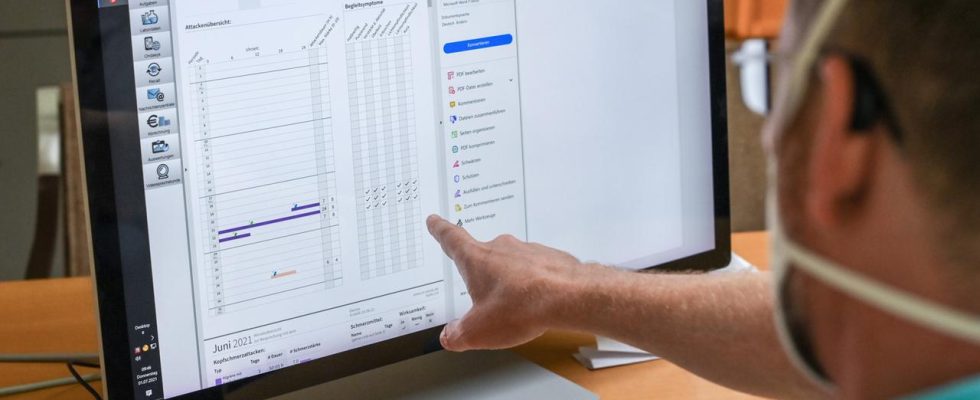exclusive
Until now, patients in Germany have been able to object to the establishment of an electronic patient file. A new EU regulation could strengthen this right SWR-According to research, lever it out. Data protection officers warn.
So far, less than one percent of all people with statutory health insurance use an electronic patient file (ePA), which can be set up voluntarily on request since 2021. From 2025, the health insurance companies will set up the ePA automatically for all legally insured people in Germany. However, patients should then have the opportunity to object to this at any time, request deletion or restrict access rights. In the case of particularly sensitive information such as mental illnesses, HIV infections or abortions, doctors should explicitly point out the right to object.
Whether the regulations in the German digital law will also apply at EU level in the future is currently being debated in Brussels. The EU regulation on the European Health Data Space (EHDS) is intended to regulate the Europe-wide availability of information about all medical treatments of a citizen – for the first time also for privately insured people.
Access to the data is intended to serve patients and treating doctors – for example in the event of a medical emergency abroad. Health data such as patient summaries, electronic prescriptions, laboratory results and discharge reports can then be immediately accessed across the EU. The data should also be made available for research and commercial use.
On December 6, 2023, the EU member states in the Council agreed on a common position on the proposed regulation on a European health data space presented by the EU Commission.
“Explanation without any legally binding”
In the minutes statement that the SWR Now available exclusively, Germany has agreed to the EU Council’s draft and the negotiations – the “trilogue” – between the Council Presidency, the European Parliament (EP) and the EU Commission. It says, among other things: “Germany supports the agreement on the final compromise text on the regulation creating a European area for health data.” At the same time, reference is made to the special features of the German regulation, which states, among other things: “If the patient objects to access to his ePA by certain service providers, no access is possible, even in an emergency.” Regulating this is therefore left to the individual member states.
For EU MP Patrick Breyer (Pirate Party), the federal government’s stance endangers the German right to object (opt-out option) to an electronic patient file. Compared to the SWR he says: “With its declaration, which lacks any legal binding force, the federal government is trying to deceive the public and perhaps itself. The declaration is a bold and not legally secure interpretation of the regulation.”
“A compulsory electronic patient record with pan-European access would create irresponsible risks of theft, hacking or loss of the most personal treatment data and deprive patients of any control over the collection of their diseases and disorders,” warns Breyer.
Government sees no problems
From the SWR When confronted with the criticism, a spokeswoman explains: “From the Federal Government’s point of view, the regulations of the Digital Act on the aspects addressed in the protocol declaration, in particular on the rights of objection in connection with the ePA, can easily be reconciled with the regulations provided for in the Council text, especially since the latter allows regulation through national law in various places.” The fear of an ePA without a so-called opt-out option is therefore unfounded.
“As far as the rights of objection in connection with the electronic patient file (ePR) are concerned, the Federal Government is committed to retaining the Council text in the negotiations with the EP.”
Amendments in Parliament
The members of the European Parliament adopted the draft with a large majority on December 13th. There was criticism from co-negotiator Breyer, who belongs to the Greens/European Free Alliance faction in the EU Parliament’s Interior Committee. Breyer warns of an end to medical confidentiality and the dangers of hacker attacks on patients’ sensitive health data. Together with MPs from the SPD, the Greens and the Left, he introduced an amendment that is intended to secure the German right to object. A majority in the EU Parliament agreed to this.
Open outcome of the trilogue
The aim of the trilogue is to conclude the negotiations during the current legislative period of the European Parliament, which ends in May 2024. In view of the very different ideas of the EU member states on how to handle patient data, it is still completely unclear whether the position taken by the German government in its protocol statement can actually prevail in the end.

